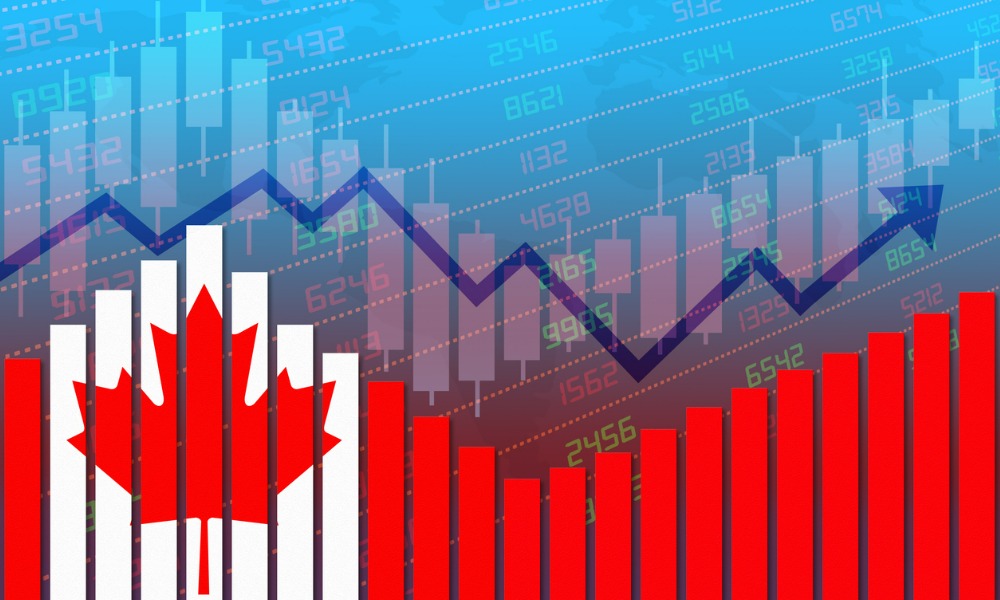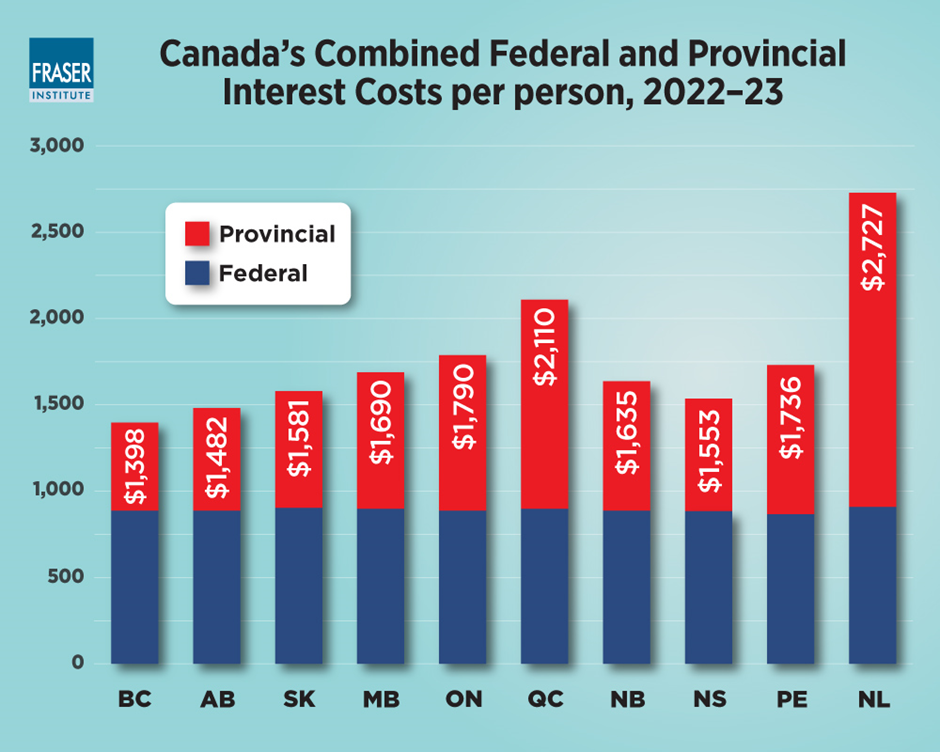Interest payments on federal and provincial debt adds another burden to households grappling with the cost-of-living crisis

At a time when Canadians are working hard to keep on top of their own finances, a new report will be a bitter pill to swallow.
Household debt may be sky high but so is public debt with government borrowing having surged during the pandemic and with soaring inflation, taking interest payments to almost $69 billion in 2022.
For the 2022/23 fiscal year, the federal government alone will pay interest of $34.7 billion according to a new study from the Fraser Institute. That means debt servicing will take a larger chunk of taxpayers’ money than childcare benefits ($29.4 billion) or employment insurance benefits ($24.8 billion).
“Interest must be paid on government debt, and the more money governments spend on interest payments the less money is available for the programs and services that matter to Canadians,” said Jake Fuss, associate director of fiscal studies at the Fraser Institute and author of Federal and Provincial Debt Interest Costs for Canadians, 2023 edition.
What’s the cost?
For every Canadian taxpayer, the cost of servicing huge government debt varies by province but averages $1,300 the study reveals.
But the highest burden will be for those in Newfoundland and Labrador where the combined federal and provincial government debt interest will cost every person $2,727. Those in Quebec will pay $2,110.
Meanwhile, those in British Columbia will pay close to the national average at $1,398. And while Albertans will pay the second-lowest ($1,482) the total interest payments paid by the provincial government ($6.7 billion) is more than will be spent on physicians.
“Even before the COVID-19 pandemic and recession, governments across Canada and in Ottawa were racking up large debts, and this debt imposes real costs on Canadian taxpayers in the form of interest payments,” said Fuss.




